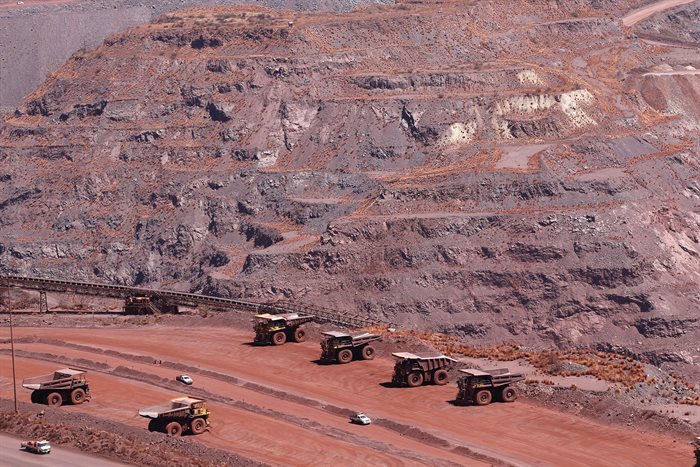
Related
Top stories






LifestyleWhen to stop Googling and call the vet: Expert advice on pet allergies from dotsure.co.za
dotsure.co.za 2 days
More news




















It said those stockpiles have grown to 7.9 million tons from 7.8 million tons as of December last year, forcing the company to cut back on mining activities and reduce its sales forecast.
Increased co-operation with the government through the National Logistics Crisis Committee could ease South Africa's rail problems, which include locomotive shortages and vandalism of infrastructure, Kumba CEO Mpumi Zikalala said.
Africa's top producer of the steelmaking ingredient hauls iron ore on an 861km rail line that runs from its giant Sishen mine in the Northern Cape province to Saldanha port.
Frequent disruptions on the line operated by state-owned rail and ports company Transnet, often caused by locust swarms, have recently been worsened by cable thefts and derailments, forcing Kumba to stockpile more iron ore at the mines.
Kumba has "seen an increase in terms of the challenges" on the iron ore line, Zikalala said on a conference call.
"We have been collaborating with Transnet and we had some successes around tamping and locust spraying and a whole lot of other things," Zikalala said.
"But we have, at the same time, other challenges. I spoke about derailments and other breakdowns," she added.
The iron ore line also moves manganese and other minerals to South Africa's ports on the western coast.
The lack of rail capacity is also hurting earnings for miners such as Thungela Resources and Exxaro Resources that rely on Transnet's networks to move coal to ports.
Kumba's profit in the six months through June declined 17% due to the rail challenges and softer prices. Still, Kumba's premium iron ore realised a price 4% above the benchmark price.

Reuters, the news and media division of Thomson Reuters, is the world's largest multimedia news provider, reaching billions of people worldwide every day.
Go to: https://www.reuters.com/